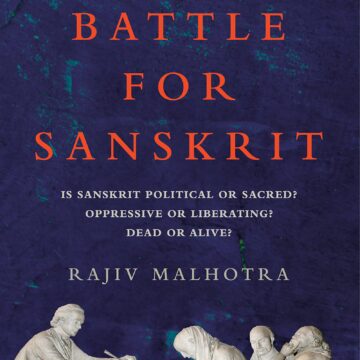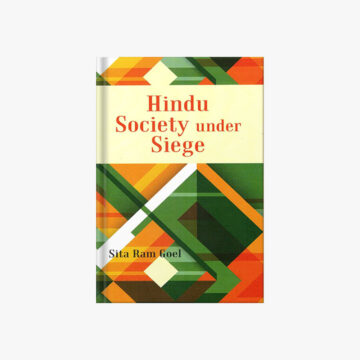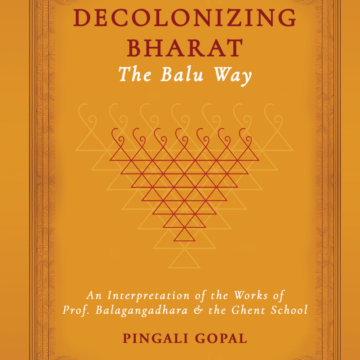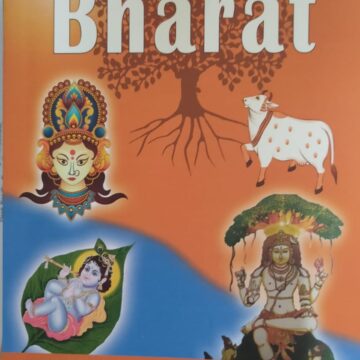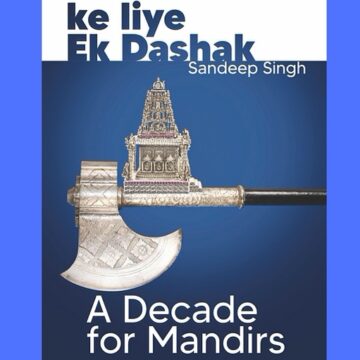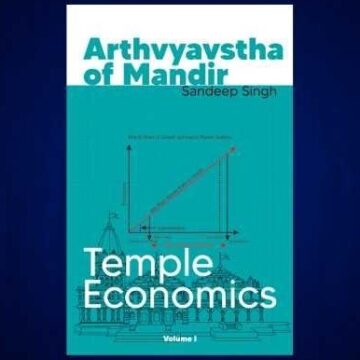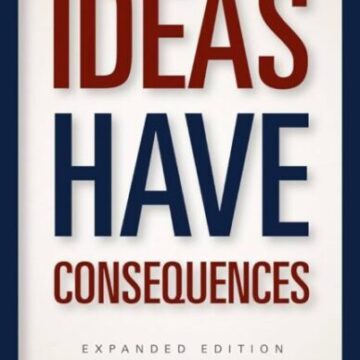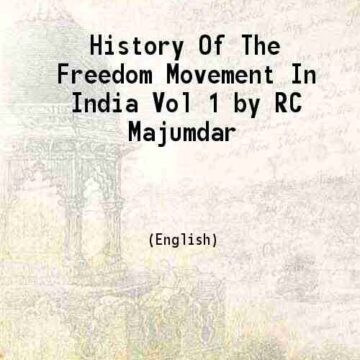First published in 2016, Rajiv Malhotra's 'The Battle for Sanskrit' is as relevant today as it was then. In the book, the author challenges dominant Western narratives that seek to desacralize Sanskrit by stripping it of its religious and cultural significance. Written in an easy-to-read style with scholarly insights, the book urges both traditional and modern readers to engage in an honest dialogue. The book is an important one that defends heritage and also seeks to de-westernise Indology.
Category: BOOK REVIEW
“Hindu Society under Siege” by Sitaram Goel : A Review
Sita Ram Goel’s "Hindu Society Under Siege" is a compelling analysis of the historical, cultural, and ideological challenges confronting Hindu society. Shri Goel examines how residues from foreign invasions—Islamic, British, and colonial ideologies—continue to undermine Hindu unity and cultural revival. A profound exploration of India’s civilizational ethos, the book calls for Hindus to unite and reclaim their heritage.
An Introduction to ‘Decolonizing Bharat, The Balu Way’
Murali Vadavalli pens a review of "Decolonizing Bharat The Balu Way" by Dr. Pingali Gopal. The book unpacks the deep cultural disconnect between Sanatani traditions and Western frameworks imposed during colonial rule. Dr. Pingali Gopal lucidly introduces S.N. Balagangadhara’s pioneering ideas, urging readers to rethink Bharat’s identity through indigenous conceptual tools. A rigorous and essential read for anyone seeking to understand India's cultural revival.
“Perversion of India’s Political Parlance” – Sita Ram Goel’s Critique of India’s Political Language
Sita Ram Goel's "Perversion of India’s Political Parlance" is an in-depth analysis of how political language in India has been twisted to serve ideological agendas. Goel critiques the selective use of terms like "secularism" to marginalize Hindu cultural identity while elevating leftist and Islamic narratives. By unraveling these linguistic distortions, the book challenges readers to reflect on the profound impact of words in shaping national identity and political discourse.
The Divine Tree of Bharat – A Review
Dr. Pingali Gopal writes a summary-review of Achanta Nagarjun's recent book "The Divine Tree of Bharat". In the book, the author delves into the timeless values of Sanatana Dharma such as interrelatedness and harmony that permeate the land of Bharat. Drawing from ancient texts and metaphors, Nagarjun counters Western narratives of a "primitive ancient India", highlighting the enduring achievements of Indian civilisation in arts, science, and spirituality. While critiquing the impact of colonial and Marxist distortions, the author calls for a revival of cultural pride and knowledge, essential to preserving the essence of Bharatiya identity amidst modern threats.
A Decade for Mandirs Volume II-Pragmatic Strategies for Restoring Hindu Temples
Sandeep Singh’s 'A Decade for Mandirs - Volume II' continues from his first volume, focussing on practical strategies for reclaiming and restoring Hindu temples. Singh critiques the state's deep-rooted anti-mandir bias and judicial meddling in temple matters. He advocates for reclaiming deity rights, respecting pujaris, and reviving cultural traditions. This volume is both a call to action and a detailed roadmap for Hindus to protect and rejuvenate their spiritual heritage.
‘Temple Economics’ by Sandeep Singh – A Review Janhavi Naik
Sandeep Singh’s 'Temple Economics' explores the economic systems around Hindu temples with meticulous detail. Divided into four parts, the book covers the history, destruction, and potential restoration of temple economies, emphasizing their cultural and economic significance.
The Vicissitudes in Vision: A Commentary on “Ideas Have Consequences”
Sai Alluri reviews the book “Ideas Have Consequences”, a philosophical classic authored by Richard Weaver in which he diagnoses the challenges of modern age. Sai Alluri talks about how the author investigates the etiology of modern man and attempts to alleviate his condition, requiring the reclamation of what constitutes his essence.
Excerpts From History Of The Freedom Movement In India By R. C. Mazumdar – Part 7 – The Enduring Myth Of 1942 Quit India Movement, And The Crucial Events Between 1942 To 1947
Dr Pingali Gopal uses R. C. Mazumdar's book "History of the Freedom Movement in India" as reference to evoke interest in the truth behind the popularised version of the history of India's independence.
The last part of the series deals with the Quit India Movement, Subhash Chandra Bose's contribution to the cause, the partition of India and final moments of dotting the i's and crossing the t's before the transfer of power.
Excerpts From History Of The Freedom Movement In India By R. C. Mazumdar – The Ruthless English: Attitudes, Second World War, Churchill, and Mountbatten – Part 4
Dr Pingali Gopal uses R. C. Mazumdar's book "History of the Freedom Movement in India" as reference to evoke interest in the truth behind the popularised version of the history of India's independence.
Part 4 deals with the naked reality of the Raj in India - the avarice, the ruthlessness, and the cunning of the British in bleeding India dry; and ultimately their reluctance to exit or even to contain the spread of the wildfire that was religious hatred and crimes that ensued.

